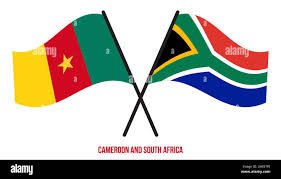
The relationship between Cameroon and South Africa is deeply rooted in a shared commitment to justice, peace, and human dignity. Their historic alliance, shaped by the fight against apartheid, stands as a testament to African solidarity in the face of oppression.
A Legacy of Resistance
Cameroon played a crucial role in the battle against apartheid, standing firm against racial segregation and actively supporting the South African liberation movement. Notably, in 1969, while leading the Organization of African Unity (OAU), Cameroon spearheaded the Lusaka Manifesto. This historic document, presented at the 24th General Assembly of the United Nations, reinforced Africa’s collective resolve to reject dialogue with the racist regime in Pretoria until the rights of South Africa’s black majority were fully recognized. The manifesto became a cornerstone of the anti-apartheid struggle.
Mandela’s Gratitude to Cameroon
Nelson Mandela’s appreciation for Cameroon’s unwavering support was evident when he visited the country twice in July 1996, shortly after becoming South Africa’s first black president. During his visit, he expressed profound admiration for Cameroon’s independence movement and its impact on his own struggle. “I am very happy to find myself in Cameroon. The history of Cameroon had an impact on me, particularly the national liberation struggle,” Mandela stated. His visit saw thousands of Cameroonians, led by President Paul Biya, singing the South African national anthem, Nkosi Sikelel’ Afrika, in a symbolic celebration of hard-fought freedom.
Economic Tensions and White South Africans’ Alleged Retaliation
Despite this strong historical bond, recent developments hint at underlying tensions, particularly involving South Africa’s economic elite. Baba Danpullo, a prominent Cameroonian businessman and close associate of President Biya, has reportedly become the target of South African economic power players seeking to undermine his business empire, Bestinver Company. This move is seen by some as an act of revenge by former apartheid-era powerbrokers, seeking to assert their dominance in South Africa’s economy.
Cameroon’s Continued Commitment to African Emancipation
Cameroon has consistently upheld its commitment to African sovereignty and justice, long after the fall of apartheid. Former Ivorian President Laurent Gbagbo acknowledged Biya’s steadfast support during his trial at The Hague, stating that the Cameroonian leader was the only one who answered his calls. Additionally, legal expert Barrister Ceccaldi linked the assassination of Libya’s Muammar Gaddafi to his push for the African Monetary Fund, which was to be headquartered in Yaoundé—an initiative aimed at reducing Africa’s dependency on Western financial institutions.
The Future of Cameroon-South Africa Relations
While the historical ties between Cameroon and South Africa remain strong, recent economic hostilities threaten to strain their diplomatic rapport. As both nations navigate these tensions, the spirit of African unity that once bound them in the struggle against apartheid will be tested in the evolving geopolitical landscape. Whether this brotherhood will withstand the pressures of modern economic rivalries remains to be seen.



